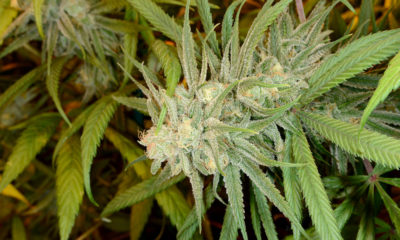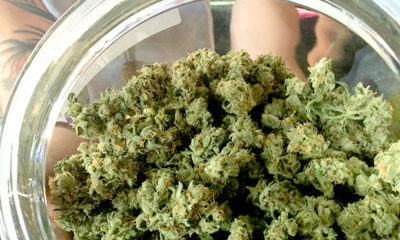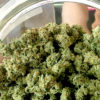
Medical
Brazil Allows Import of THC Products, But Only Cultivation of Hemp
Brazil’s limited medical marijuana program is taking a step forward with new regulations announced this month that will allow the importation of THC products.
On Dec. 3, Brazil approved new rules to allowing the import and sale of medicinal cannabis-based products, but at the same time, it turned down a proposal to allow domestic marijuana cultivation.
Brazil’s medical marijuana program has languished for years and these new regulations could spell significant if still limited progress.
However, it’s a small step forward and a far cry from any kind of permissive legal cannabis program the likes of which was pioneered by its neighbor Uruguay. Cultivation within the country will be confined to “hemp” — that is, CBD-only strains of cannabis with less than 0.3% THC. And even that is proceeding very slowly.
THC Products Become Available — At Last
Until now, Brazilian patients suffering from specific listed conditions had to apply online at the country’s health agency website to receive cannabidiol (CBD) products. These new regulations will allow both CBD and THC products to be directly available at pharmacies with a prescription. The regulations also establish standards for commercialization, distribution and prescription of medical cannabis products.
The THC products may take a little longer to become available, as foreign suppliers need to be established.
Because the health department decided to prohibit domestic cultivation, it appears that Brazil, under the rule of hard-right President Jair Bolsonaro, is not yet preparing to join neighbors Colombia and Uruguay in developing its own vertically integrated medical marijuana sector.
Hemp Cultivation Permitted, But Just Barely
Separately, however a federal judge in Brasilia ruled on Dec. 3 that one specific company may commence cultivation of hemp — that is, cannabis with a THC content of below 0.3%. The company in question is Schoenmaker Humako Agri-Floriculture, a subsidiary of Terra Viva, based in the agricultural interior of São Paulo state.
This is again an extremely limited decision, only applying to the one company that brought the case, which apparently intends to grow industrial hemp. However, the Brazilian Ministry of Agriculture is now obliged to include hemp on the National Cultivar Register list. This could open the door to other companies applying to cultivate hemp, and potentially to the domestic production of hemp-derived CBD products.
Brazil passed its medical marijuana law in 2015, allowing the importation, sale and use of CBD-only non-herbaceous cannabis products. Cannabis has been decriminalized in Brazil since 2006, but there is no provision for cultivation, and “alternative penalties” such as mandatory treatment programs may be imposed on people caught with cannabis.
Cannabis use in Brazil is widespread, and international industry watchers have identified Brazil as the biggest potential market in Latin America. With the region’s largest population, Brazil is also home to its greatest number of cannabis users — an estimated 4.2 million.
A Small Opening Amid Spiraling Narco-Violence
There are no signs that Brazil’s government is looking to a legal cannabis sector as a solution to endemic narco-violence, as are the governments of Colombia and Mexico. And Brazil, alas, is fast catching up to these two hemispheric leaders in that particularly intractable social pathology.
This May, five months after Bolsonaro took office, the New York Times reported a massive escalation of police killings in anti-crime and anti-narco operations — 558 deaths since the leader’s inauguration, or nearly five per day. These mostly took place in the favelas, or informal settlements of Rio de Janeiro and São Paulo, almost completely abandoned by the government except for increasingly militarized policing, often deploying helicopters and armored vehicles. This leap in deaths at the hands of the police is hardly surprising, as Bolsonaro had campaigned on the unseemly slogan “The only good criminal is a dead criminal.”
But the power of Brazil’s cartels, such as the notorious First Capital Command, has clearly not been broken. Even when their leaders are imprisoned, they continue to run their empires in cocaine and illicit cannabis from behind bars, often gaining de facto control of the prisons. In July, a clash between rival gangs left at least 57 dead, including 16 decapitated, at Altamira prison in the state of Pará — but the latest in a long and bloody series of riots and gang warfare in Brazil’s prisons.
TELL US, would you want to get cannabis from your doctor?




















